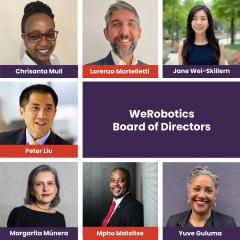
The Ripple Effect of Turning Data into Action
September 5th, 2024
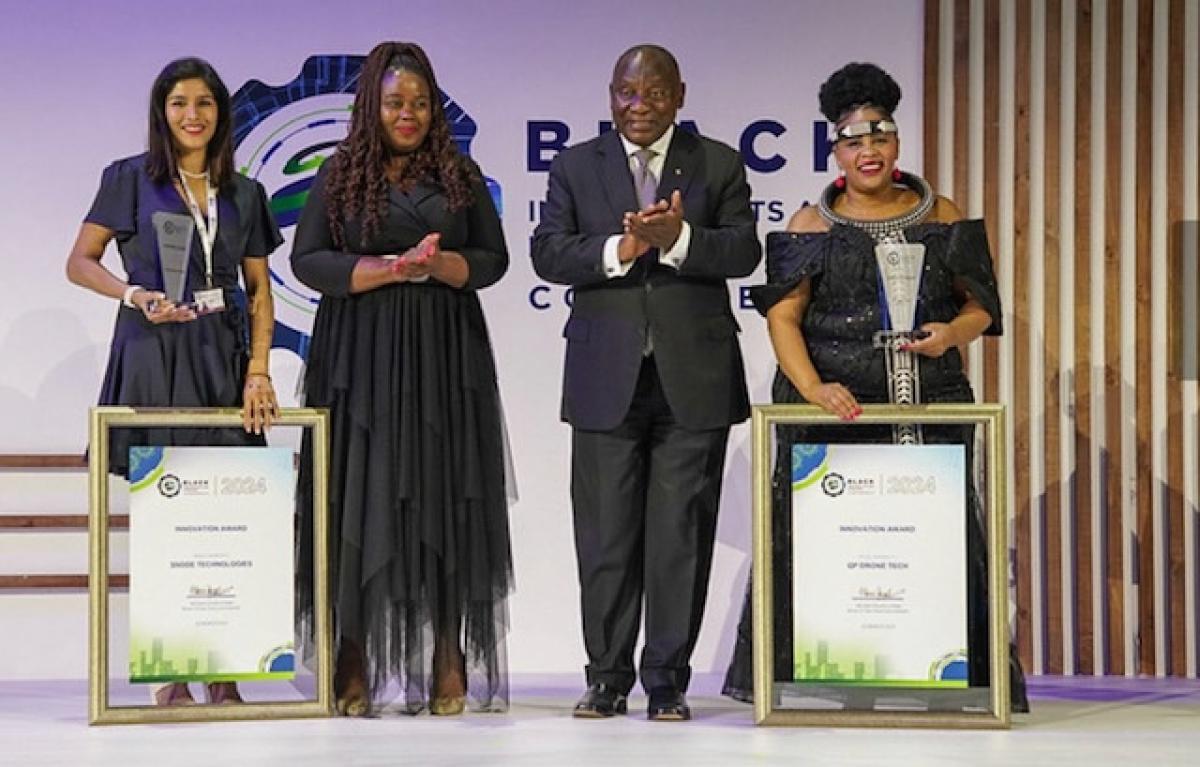
A pebble dropped into a pond may seem inconsequential at first glance. But upon closer inspection, the ripples extend far beyond the initial splash, influencing the surrounding environment in meaningful ways. Similarly, a microgrant can transform a small local project into significant opportunities and impactful outcomes. With the Turning Data into Action (TDIA) microgrant approach, WeRobotics extends to Flying Labs critical financial, technical, strategic, and communication support that allows Flying Labs to turn a small project into far-reaching impact and a cascade of opportunities.
In April 2022, South Africa Flying Labs made their way to Alexandra, a township in Johannesburg. Devastating floods had just claimed more than 300 lives and affected thousands more in various parts of the country, shining an unforgiving light on the state of disaster preparedness and response. The plan was to hold a drone stakeholders’ consultative workshop in Alexandra and examine the area to help identify areas at risk of floods and fire. It was but one step. The insights revealed from the workshop developed into South Africa Flying Labs’ Turning Data Into Action (TDIA) project, during which the team worked closely with the local community and authorities to map the area and use the data collected to plan for disaster risk mitigation. That one step quickly rippled into a slew of opportunities the team had not anticipated.
I don’t think we were ready for what had happened when we defined the microgrant project… The kind of response we received was more overwhelming than we had imagined. I don’t think we thought it would be this big, but we knew that it was a cause that was worth exploring, especially with the impact of climate change.
— Jack Shilubane, Operations Director, South Africa Flying Labs
To the team’s surprise, their work was met with enthusiasm even beyond the local community. The City of Johannesburg municipality took an interest in the project. Media houses came calling. Potential partners reached out. By October 2022, what started as an endeavor in drone mapping for disaster risk assessment culminated in the first conference addressing drones in disaster management in South Africa. The event brought together industry experts, government officials, private sector representatives, and UN agencies, all eager to share insights and best practices for using drones and robotics for disaster management, preparedness, and response.
Then, in February 2023, disaster struck once more. Heavy rainfall along the Jukskei River in Alexandra led to further flooding, and South Africa Flying Labs swung into action. The need to build on their previous experience for a more effective intervention was evident so, with WeRobotics, the decision was made to extend the microgrant support. Leveraging the relationships built during the initial TDIA project, the team returned to the township for phase two – a change detection exercise to map and assess the damage. This was followed by the second installment of the Drones in Disaster Management Conference in November 2023, further solidifying the role of drone technology in disaster risk management and South Africa Flying Labs’ place as a thought leader within the space.
At present, anticipation builds for the third conference, slated for November 2024 in Cape Town. With a focus on drones, AI, and GIS for disaster risk management, the event will be even bigger and better, with two days centered on strategic discussions and two days with hands-on drone and data workshops. While the previous conferences were national two-day events, this year’s event will be a regional conference for the entire SADC region and will be co-organized with more partners: South Africa Flying Labs, WeRobotics, Esri, RCMRD, and MapAction. The first conference of its kind, it builds on the success of South Africa Flying Labs’ last conferences and paves the way for greater regional collaboration on the rest of the continent.
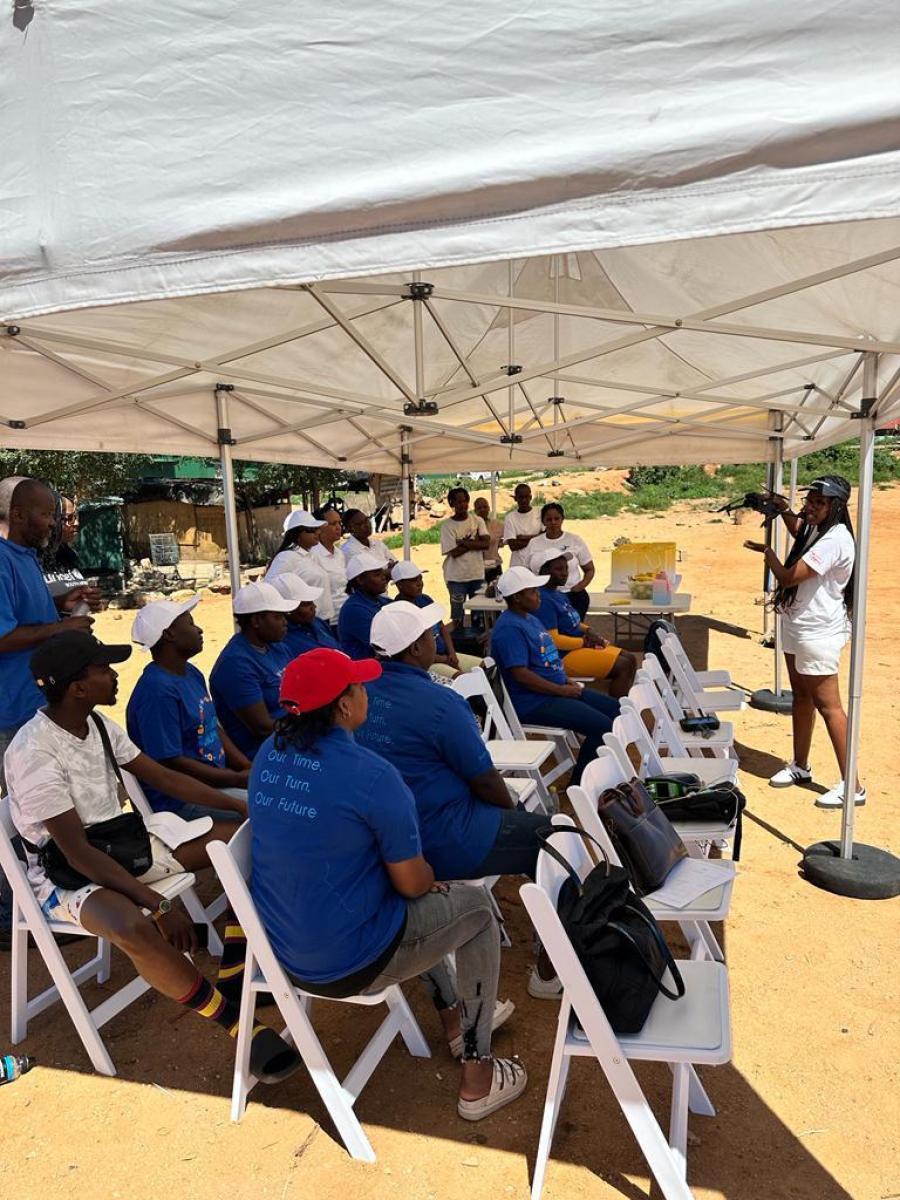
According to the South Africa Flying Labs team, central to the successes that have cascaded from their TDIA project was the engagement of stakeholders at all levels – from government officials to local community members. This inclusive approach not only ensured comprehensive input but also forged lasting relationships that continue to create great impact today. One such impact has been the awareness among the youth of Alexandra of the possibilities within disaster risk assessment, mitigation, and response. Through South Africa Flying Labs’ drone and data training as well as accredited training offered by one of its partners, the young people who participated in the project's first and second phases are poised to become disaster management champions in Alexandra, paving the way for greater economic empowerment and community resilience.
The most valuable part of the TDIA process was engaging stakeholders, understanding where they come from, and sharing insights and information with them. It gave us an opportunity to create new partnerships at that level with the communities and also at the level of sponsors and partners.
— Jack Shilubana, Operations Director of South Africa Flying Labs
The most interesting part was when we went back and shared our findings with the local stakeholders and there was a lot of excitement, ownership, and accountability. It taught all of us that we are in control, we can manage the challenges that come from climate change. Another valuable part was that this project gave us an opportunity to liaise with stakeholders that would not have liaised with under normal circumstances, such as the City of Johannesburg, UNICEF, and the local communities themselves.
— Queen Ndlovu, Managing Director, South Africa Flying Labs
South Africa Flying Labs’ experience is a prime example of what is possible when the space is expanded for local experts to drive change in their communities. The team attests that the spotlight that shone on them and their work has allowed opportunities to find them in a way that they did not before. Various municipalities are eager to partner with them. They have made presentations and held masterclasses for local authorities and government agencies interested in drones for disaster management. Media coverage has been extensive, with profiles in several outlets, including radio, TV, and print, highlighting their work. Interest in collaborating with them comes from as far as Botswana, Swaziland, and Lesotho. They are working in collaboration with the National Disaster Management Centre, the body responsible for managing disasters in South Africa, and they anticipate even deeper relationships with various policymakers in government. They have been the recipient of numerous awards, including the Innovation Award at the 2024 Black Industrialists and Exporters Conference presented by President Cyril Ramaphosa.
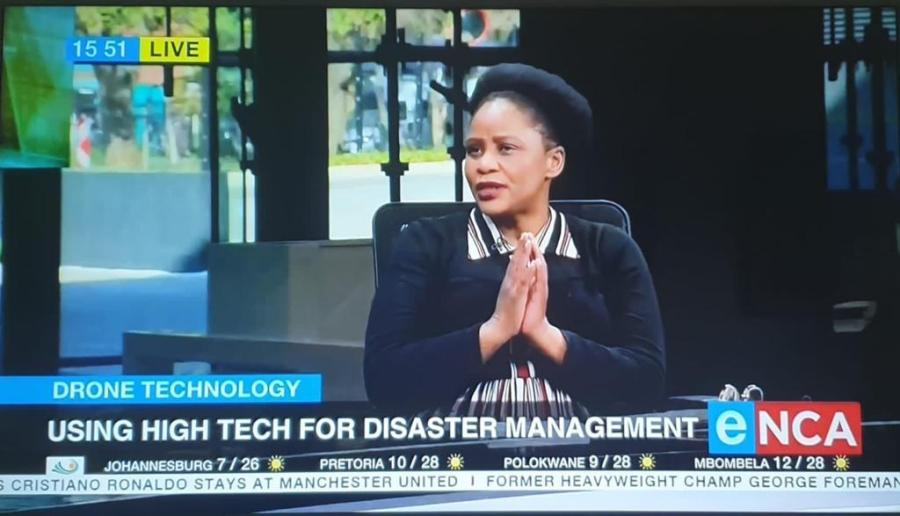
It begs the question: how many opportunities do local technology professionals miss out on when their expertise and unique ability to create impact in the communities where they live goes unacknowledged? And how many solutions to the real-world problems that affect us all remain confined to small teams of local experts in the Global South, their true potential kept from impacting the rest of the world?
The visibility that we have achieved as a brand out of this engagement, the recognition that we have achieved. The fact that we are beginning to be seen as trailblazers, being seen as people that offer something different within the drone space…that, for me, is one of the most important things that came out of this project and process.
— Jack Shilubana, Operations Director of South Africa Flying Labs
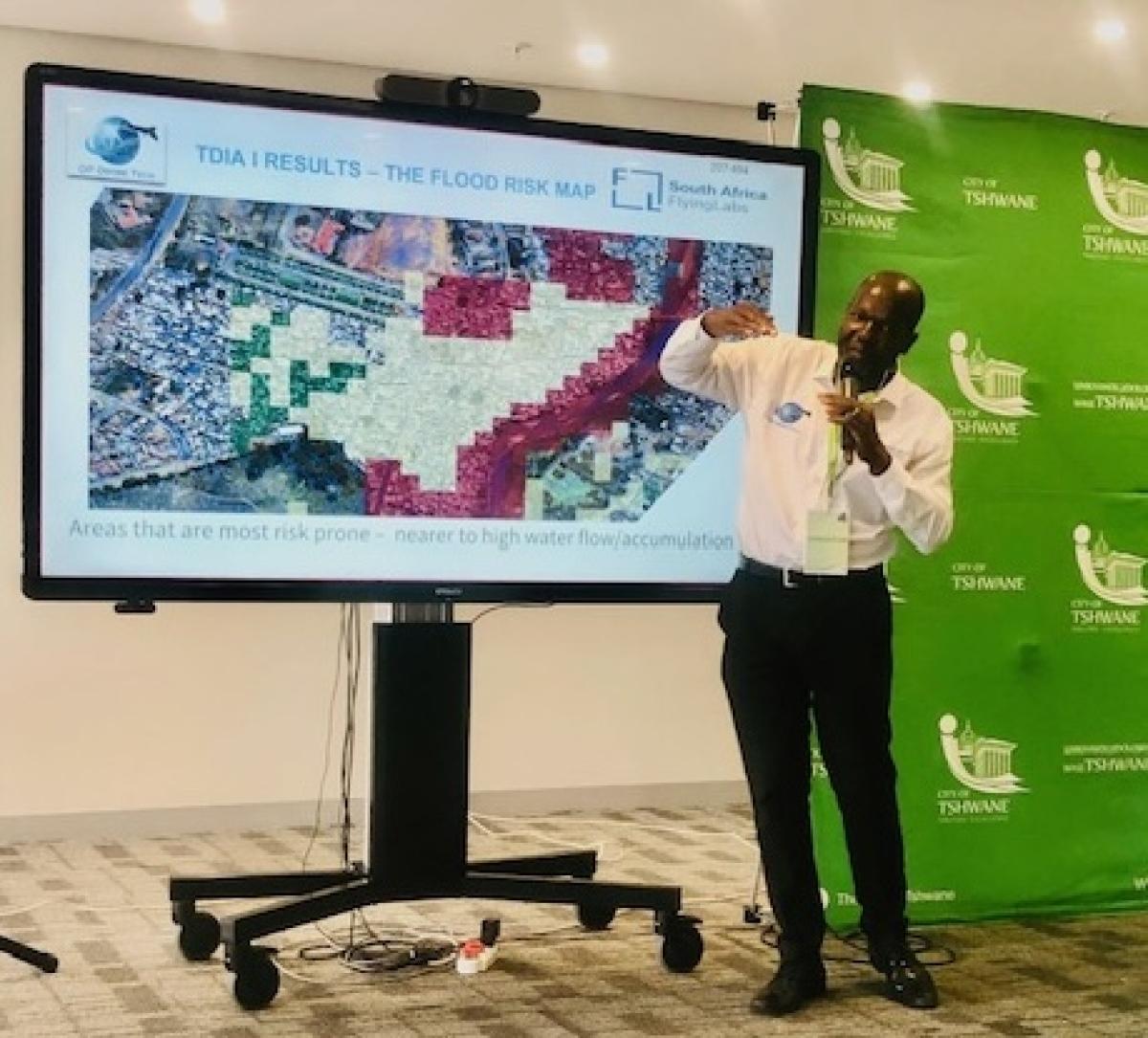
The microgrant did not cover all the costs as we had envisaged, but it taught us that from something small can come a big achievement. The microgrant has been a catalyst for many other doors that were opened for us in the utilization of drones for disaster management.
— Obed Radebe, Technical Director of South Africa Flying Labs
We set out to encourage the stakeholders in Alexandra to appreciate the use of drone technology when it comes to disaster preparedness and response but this led to us getting recognition as thought leaders in the disaster management space using robotics. So the project granted us an opportunity to claim the space when it comes to using drones and robotics in disaster management. We built and continue to build many good relationships with government officials, with media houses, with our beneficiaries from the local communities, which has been quite impactful.
— Queen Ndlovu, Managing Director, South Africa Flying Labs
The Power of Local lies in the sustainable stewardship of the resources available to us to create the change we want to see in our communities. This is why WeRobotics’ glocalization approach moves away from a one-way flow of knowledge from privileged regions to marginalized ones, and towards a full-circle exchange, where local expertise shines on the global stage and then returns to local communities enriched. A better world will not come from a tidal wave of expertise flowing from the Global North to the Global South. It will come from the local experts contributing their knowledge and wisdom and creating ripples of change that resonate globally.
Recent Articles

